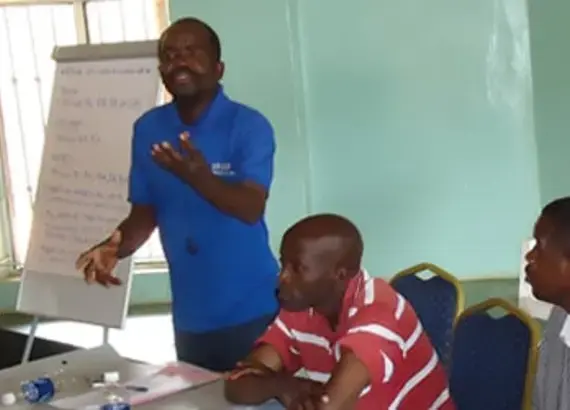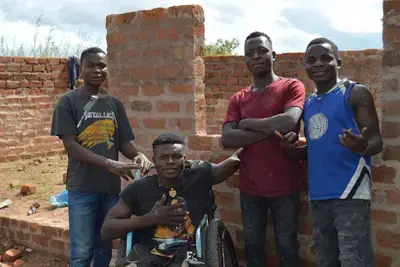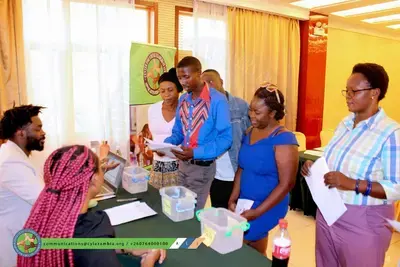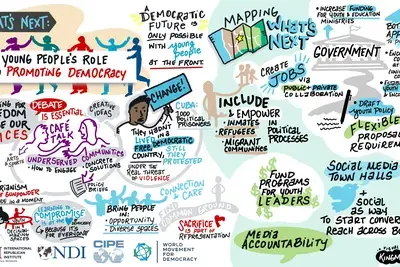
Success Story
Constitutional Dialogues Bring Zambia's Youth Into the Political Process
Young people make up nearly 60 percent of the population in Zambia and face growing unemployment rates. But their participation in politics and government has remained low. A group of youth-oriented civil society organizations is using the drafting of a new constitution as an opportunity to address youth issues and include young people in the political process.
Since Zambia gained independence from the United Kingdom in 1964, there have been four attempts to rewrite its constitution. Past efforts were rejected, largely because citizens felt the proposed drafts did not represent the needs of the public. When President Michael Sata was elected in 2011, he decided to revisit the process, and a draft constitution was released by the Zambian government last April. But many representatives from youth organizations said that young people had not been adequately involved.
Working to remedy that and to teach young people more about the constitution drafting process, organizations including Young Women in Action (YWA), the Young African Leaders Initiative (YALI), Zambia Rainbow Coalition (ZRC) and Youth Alive Zambia (YAZ) are hosting five, two-day provincial dialogues in different regions of the country to address how the new constitution directly affects young people. With financial and technical support from NDI, the groups have organized dialogues in the Lusaka, Eastern, Southern, Northern and Northwestern provinces.
The dialogues focus on Article 56 of the constitution, which addresses youth issues. Most notably they have raised concerns that the article does not require the government to ensure that young people have access to employment, education and training, as well as opportunities to participate and be represented in political, social and economic decisions.
Other issues discussed included establishing a Referendum Commission to set out the process for approving the new constitution, giving more power to local governments, emphasizing the separation of powers within government for more accountability, funding of political parties and instituting term limits for members of parliament.
More than 160 young people have taken part in the dialogues. Each included a plenary session that laid the groundwork for the discussion before participants broke into groups to discuss what concepts should be included in the constitution. Groups then presented their findings back to the plenary for further debate.
"This is a constitution of the youth and the generations yet to come,” said Eugene Ndhlovu, a participant from Chipata in the Northern province. “This dialogue will enable us to express ourselves and influence the content and enactment of the new constitution.”
The dialogues will produce a two-page document that will help in the development of a “Young Leaders Declaration on the Constitution” with concrete suggestions on how to address youth issues in the draft constitution. It will be submitted to 10 provincial constitutional conventions and later to a National Constitutional Convention. It will also be submitted to the Technical Committee for the Drafting of the Constitution (TC)—a 17-member committee appointed by the president in 2011 to draft Zambia’s new constitution—and be used to lobby members of parliament, political parties and other groups involved in drafting the new constitution.
The TC is expected to submit a final draft constitution by the end of the year.
Published October 19, 2012



